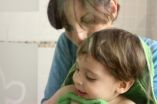(Press-News.org) Researchers from the University of Alicante (UA) taking part in the European VACSATC project have studied mothers' and fathers' opinions on vaccinating their children in five countries. The results of the survey show that Spanish mothers are more resistant than those in other countries to the idea of paying for vaccines, while 20.9% expressed some concern about the safety of vaccines.
"Mothers in Spain are more concerned about vaccinating their children since the incident with the human papilloma virus (HPV) vaccine", José Tuells, a researcher at the UA and a Spanish member of the European VACSATC project, which this study forms part of, tells SINC.
According to the study, which has been published in the journal Vaccine, 20.9% of the mothers surveyed in Spain have had some concern about the safety of vaccines, compared with just 8.1% in Switzerland and 4.1% in Norway.
Of the 6,611 surveys carried out in Spain, the United Kingdom, Poland, Norway and Sweden between May 2008 and December 2009, 913 were carried out in the form of face-to-face interviews with Spanish mothers of children aged between 0 and 3.
"We compared the sources that parents use to obtain their information about vaccines, and we asked them to evaluate which they felt to be the most reliable and their opinion about the role that vaccination plays, the safety of vaccines in their countries, and the diseases they consider to be most dangerous", Tuells explains.
Spain happiest with vaccination services
The results also show that Spain is the country where mothers have least concerns when it comes to vaccinating their children (11.9%). The Spanish were also seen to be most pleased with the vaccination services offered (90.8%).
When asked whether they would continue vaccinating their children in the future, the agreement rate was high in all countries (more than 90%), except in the United Kingdom (80.9%). "This is due to the fact that in Britain people have been immersed in the polemic caused by the MMR vaccine – measles, mumps, rubella – for more than 10 years, and there is some rejection of this vaccine", the Spanish researcher says.
The best information comes from healthcare professionals
There is agreement in all the countries that healthcare professionals are the most trustworthy when it comes to sources of information about vaccines.
"The government and national public health institutes also showed up as important and reliable sources of information in Norway, Sweden and the United Kingdom", says Tuells. In Spain and Poland the media, family and friends were given as the second most commonly used and trustworthy information source.
The research group that Tuells leads at the UA is currently carrying out a research line called "vaccine acceptability" about the beliefs, attitudes and opinions of various social groups in relation to vaccines as a whole and certain specific ones, such as those for HPV, Swine Flu, Pneumococcal Meningitis and Rotavirus.
INFORMATION:
More information about VACSATC: http://www.vacsatc.eu/
References:
Pawel Stefanoff, Svenn-Erik Mamelund, Mary Robinson, Eva Netterlid, Jose Tuells, Marianne A. Riise Bergsaker, Harald Heijbel, JoanneYarwood, "Tracking parental attitudes on vaccination across European countries: The Vaccine Safety, Attitudes, Training and Communication Project (VACSATC)", VACCINE 28 (35): 5731-5737, agosto de 2010.
Childhood vaccines yes, but not at a cost
2010-10-08
ELSE PRESS RELEASES FROM THIS DATE:
Venus Express finds planetary atmospheres such a drag
2010-10-08
VIDEO:
This animation demonstrates the orbital perturbations to Venus Express caused by the atmospheric drag experienced as the spacecraft skims the atmosphere of Venus. To experience the drag, the spacecraft must...
Click here for more information.
The polar atmosphere of Venus is thinner than expected. How do we know? Because ESA's Venus Express has actually been there. Instead of looking from orbit, Venus Express has flown through the upper reaches of the planet's ...
Life-saving in the bacterial world: How Campylobacter rely on Pseudomonas to infect humans
2010-10-08
Many a holiday is ruined by food poisoning, frequently caused by the bacterium Campylobacter jejuni. Although Campylobacter infections are rarely life-threatening they are extremely debilitating and have been linked with the development of Guillain-Barré syndrome, one of the leading causes of non-trauma-induced paralysis worldwide.
Campylobacter jejuni is well adapted to life in the guts of animals and birds, where it is often found in very high levels. However, to infect humans it also needs to be able to survive outside the gut, on the surface of meat that will be ...
Greater priority should be given to stroke prevention in developing countries
2010-10-08
Increased global attention and research needs to be given to stroke prevention and the social and economic effects of the condition in developing countries, according to an academic at the University of East Anglia (UEA).
In a paper published in the current issue of the journal Development Policy Review, Prof Peter Lloyd-Sherlock of the School of International Development argues that policy-makers have been slow to recognise the growing scale of the challenge and impacts of stroke in developing countries. He calls for them to prioritise preventative screening and drug ...
Neural responses indicate our willingness to help
2010-10-08
Witnessing a person from our own group or an outsider suffer pain causes neural responses in two very different regions of the brain. And, the specific region activated reveals whether or not we will help the person in need. Researchers at the University of Zurich studied the brain responses of soccer fans and now have neurobiological evidence for why we are most willing to help members of our own group.
Our reactions to shocking news clips on television demonstrate that human beings can remain remarkably cool in the face of other peoples' suffering. And yet, we are also ...
Education program developed for preventing antisocial behavior in 3-year-old children
2010-10-08
University of Granada researchers have developed a pioneer intervention program aimed at 3 year-old children, that helps in preventing antisocial behavior in adulthood. In its first year of implementation, the program –named Aprender a convivir– achieved that 90% of participating children interacted more actively with their peers, and that 86% reduced symptoms such as anxiety/depression, somatization, poor emotional reactivity, shyness, and social isolation.
To carry out this study –funded by the Spanish Ministry of Education and Science–, the researchers took a sample ...
New computer switches handle heat that renders transistors useless
2010-10-08
Researchers at Case Western Reserve University have taken the first step to building a computer capable of operating in the heat of a jet engine or the sunny side of the planet Mercury.
Te-Hao Lee, Swarup Bhunia and Mehran Mehregany, have made electromechanical switches – building blocks of circuits - that can take twice the heat that renders electronic transistors useless. Their work was published in Science last month.
The engineers took their cue from English inventor Charles Babbage, who built a steam-driven machine to calculate mathematical tables in the 1830s. ...
Patient personality hinders detection of depression
2010-10-08
Patient personality affects the accuracy of reports by friends and family members of mood history and symptoms and can cause missed diagnoses of depression, according to research published online by the journal International Psychogeriatrics.
Friends and family members of a person who is highly outgoing and fun-loving and who is likely to experience happiness and excitement, for example, often miss the signs that indicate the person is depressed.
"When a person who has enjoyed socializing and whose mood normally is positive becomes depressed, friends and family often ...
Reducing blood transfusions improves patient safety and cuts costs
2010-10-08
MAYWOOD, Ill. -- A Loyola University Hospital study has demonstrated how the hospital has improved patient safety and cut costs by reducing the number of blood transfusions.
In 2009, the average amount of blood products transfused per patient at Loyola was 10 percent lower than it was in 2008, saving $453,355. The average amount of blood products transfused dropped from 2.03 units per patient in 2008 to 1.82 units per patient in 2009.
Results were reported at the recent annual meeting of the College of American Pathologists.
"We are giving the right blood component, ...
The elusive intermediary
2010-10-08
Photosynthesis is the process used by plants to convert atmospheric carbon dioxide into the energy-rich chemicals upon which all life-forms depend. The energy trapped in these compounds comes from sunlight, and photosynthetic organisms – plants, algae and certain types of bacteria – capture this energy in a usable form with the help of protein complexes called photosystems. Photosystems include antenna proteins that collect incident light, and green plants have two sorts of photosystems, which respond best to light of different wavelengths. A team of researchers at LMU, ...
Report examines effects of noise and recommends ways to reduce levels
2010-10-08
Exposure to noise is a fact of life. At high levels, noise can damage hearing, and at lower levels it can disrupt sleep patterns, interfere with communications, and even cause accidents. A new National Academy of Engineering report characterizes the most commonly identified sources of noise, looks at efforts that have been made to reduce noise emissions, and suggests ways to decrease exposure in workplaces, schools, recreational environments, and residences.
Development of noise control technology needs immediate attention, said the committee that wrote the report. America ...


